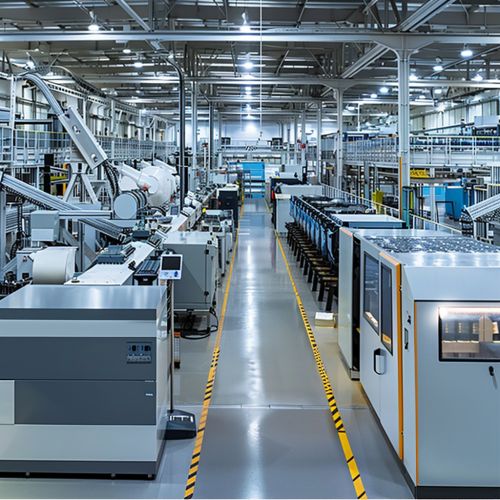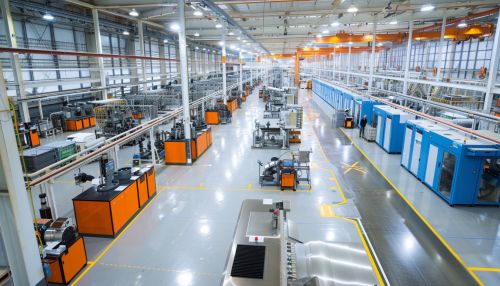Manufacturing Engineering
Overview
Manufacturing engineering is a discipline of engineering that deals with various manufacturing practices, research and development of systems, processes, machines, tools, and equipment. This field also deals with the integration of different facilities and systems for producing quality products by applying the principles of physics and the results of manufacturing systems studies read more.
History
The history of manufacturing engineering can be traced back to the Industrial Revolution. During this time, there was a shift from hand production methods to machines, new chemical manufacturing and iron production processes, improved efficiency of water power, the increasing use of steam power and the development of machine tools read more. The development of manufacturing engineering has been greatly influenced by the needs of industrialized society.
Principles
Manufacturing engineering involves the ability to plan the practices of manufacturing; to research and to develop tools, processes, machines and equipment; and to integrate the facilities and systems for producing quality product with the optimum expenditure of capital read more.
Manufacturing Processes
Manufacturing processes can be divided into several categories, namely forming, cutting, joining, and additive manufacturing. Forming processes involve the deformation of workpieces by mechanical force. Cutting processes involve the separation of the workpiece into two or more parts. Joining processes involve the putting together of parts to make a whole. Additive manufacturing involves the addition of layers of material to create a part.
Manufacturing Systems
Manufacturing systems involve a series of steps that a company takes to manufacture a product. This includes everything from the raw materials used to the final product. The type of manufacturing system used depends on the product being made, the materials used, and the size of the company.
Manufacturing Equipment
Manufacturing equipment refers to the machines and tools used in the manufacturing process. This can range from small hand-held tools to large machinery. The type of equipment used depends on the type of manufacturing process being carried out.
Manufacturing Quality Control
Manufacturing quality control involves the processes and procedures that a company uses to ensure that its products meet specified quality standards. This can involve testing of the products, inspection of the manufacturing process, and oversight of the manufacturing facility.
Future of Manufacturing Engineering
The future of manufacturing engineering is likely to be heavily influenced by technology, particularly in areas such as automation and robotics. As technology continues to advance, manufacturing engineers will need to adapt and develop new methods and processes to keep up with these changes.
See Also


